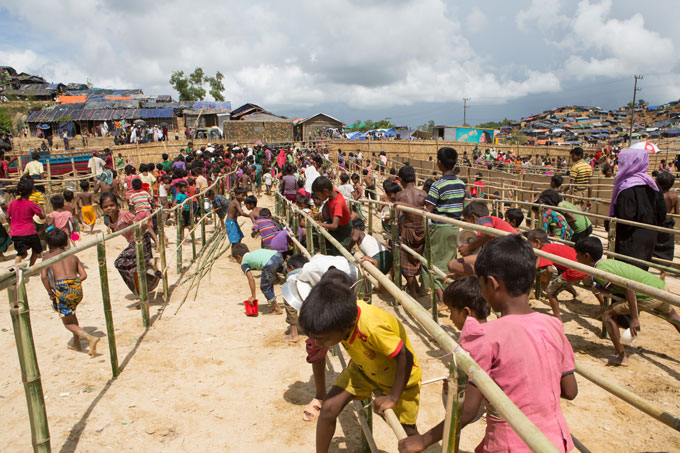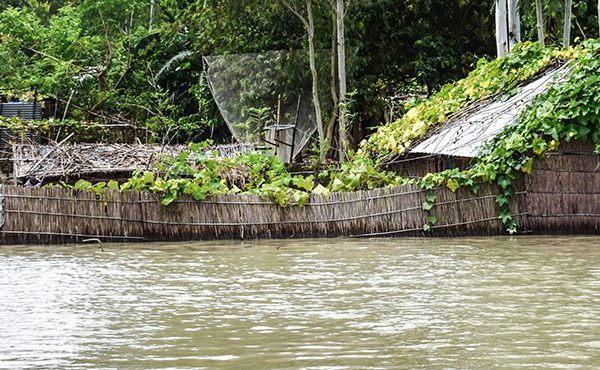Reading Time: 2 minutes
A boy and a girl tussle over a bowl. It looks similar to one he lost in the crowd, and he needs one if he wants to get the food that is being served. The girl too realises that she will have to starve for the day if she lets the bowl go. She holds on with all her strength and cries out in frustration, and eventually walks away, clutching it tightly in her small arms.
It is another afternoon in Thaingkhali, part of potentially one of the world’s largest settlement for forcibly displaced people.
A crowd of 20,000 people, mostly of who are children, have gathered in a field. They stand in unending lines, waiting for their meal- today, it is a bowl of rice, lentil and curry. And for many, this is the only meal they will have for the day.
There is an acute shortage of everything here, and with the new influx of people arriving, there are growing concerns over an impending food crisis. An estimated 145,000 people are children under the age of five who are suffering from acute malnutrition. Families are starving as humanitarian operations struggle to keep pace with the surging population.

It’s a fight every day. Soon as the call for lunch is heard, adults and children alike scramble ahead to fill their bowls before the food runs out. Children lucky enough to have their parents, wait outside the crushing mass of people. Children who have crossed the border unaccompanied, however now learn to stand and jostle for themselves.
This Saturday alone, over 12,000 people have arrived, and the numbers are expected to grow substantially in the coming days.
We remain on full alert of the potential new influx. 700 of our frontline staff are currently on the ground, reaching people with vital services in health, safe water, sanitation, and child protection. We are scaling our humanitarian efforts every day to meet the changing needs of the population.
Learn more about what you can do to support the humanitarian crisis in Bangladesh.
Ali Iqbal Murshed is an external communications specialist at BRAC.





